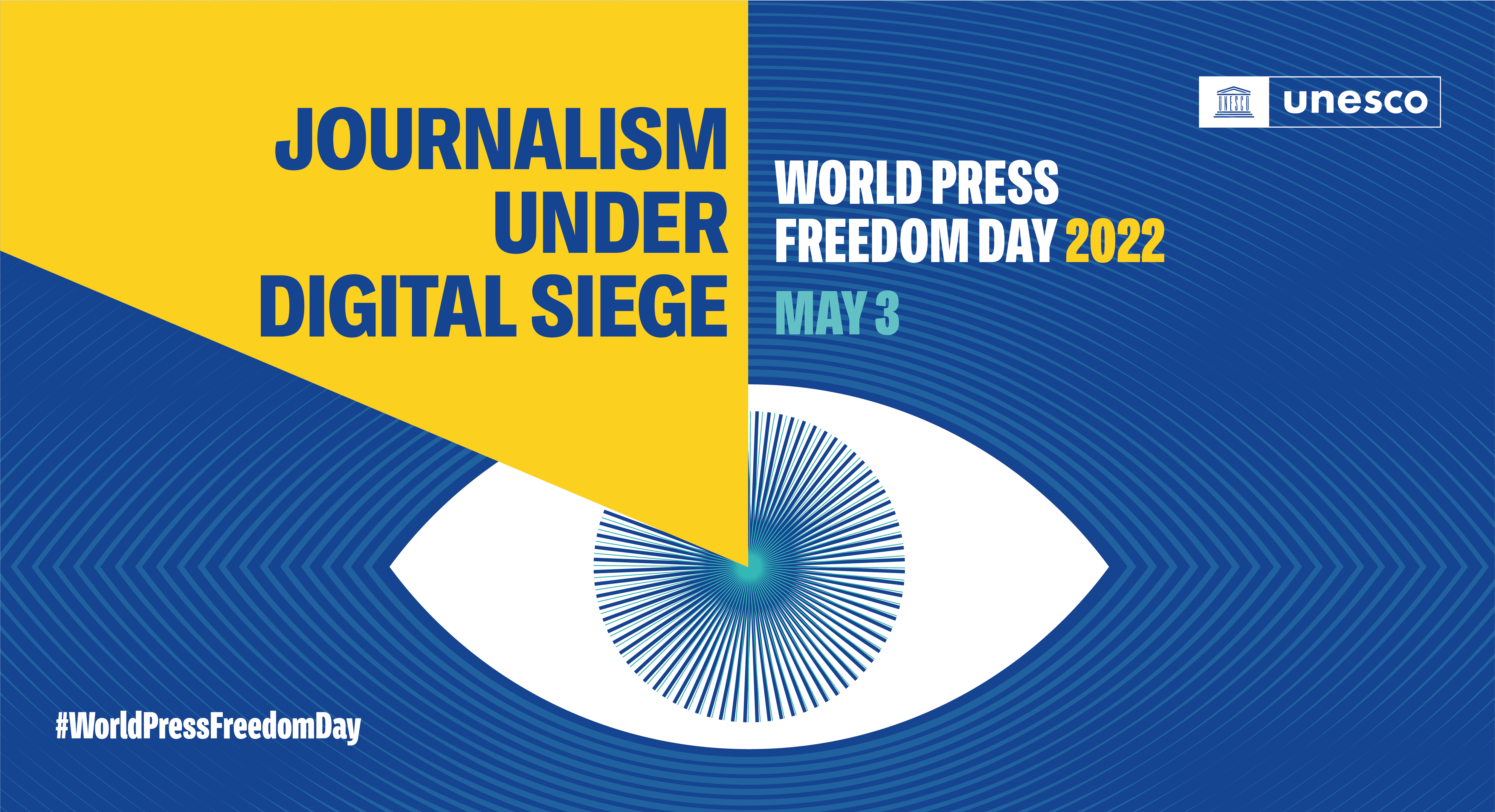By Edrine Wanayama |
Across the world, journalists face daily affronts physically and online for the work they do. Although the proliferation of technology has come with benefits for the practice of journalism, it has also adversely affected the media landscape to the extent that in some countries journalism has come under siege under the digital era.
Technology has served to enable major shifts in how journalism is practiced, in addition to enhancing freedom of expression and access to information in addition to complementing the promotion of accountability and transparency. However, negative aspects such as digital surveillance are endangering the practice of journalism. The use of sophisticated technologies by governments is fuelling rights violations as it is now easier to track, arrest, detain, persecute and prosecute media professionals whose content is deemed unacceptable to the authorities.
This year, World Press Freedom Day (WPFD) was commemorated under the theme ‘Journalism Under Siege’ and recognised how recent developments in technological means of monitoring and surveillance impact journalism and freedom of expression.
Digitisation offers several benefits for the journalism sector, including the pace at which content can be collected and shared across online platforms. However, the risks and harms that come with digitisation, such as the elimination of professional gatekeepers who also uphold journalistic ethics, fabrication of content, falsification of information, misinformation and disinformation, hate speech, and online harassment, have become major threats to the sector.
Even though the digital space offers broad opportunities for the practice of the journalism profession, various countries in Africa have taken systematic steps to limit the enjoyment of freedom in the digital space. Many states across the continent including Egypt, Kenya, Lesotho, Mozambique, Nigeria, Rwanda, Tanzania, Uganda, Zambia, and Zimbabwe have enhanced their surveillance capacities including through enactment of enabling legislation which is often used against state critics and journalists.
Furthermore, mass data collection initiatives such as registration of persons for national identification documents, SIM card registration, voter registration and the creation of interlinked databases by the government for various services, have increased the precision with which state authorities can identify their targets. This is of particular concern for the media and their sources.s.
As such, at the WPFD commemoration in Uganda organised by the Uganda’s Media Sector Working Group (UMSWG) in conjunction with the African Centre for Media Excellence (ACME), the Collaboration on International ICT Policy for East and Southern Africa (CIPESA), the Makerere University Department of Journalism and Communication, the Media Council of Uganda, Uganda Communications Commission, and the Uganda Human Rights Commission, attendees discussed the country’s shrinking digital space, surveillance, arrests and persecution amidst growing digitalisation practices across sectors and the population.
These concerns were echoed at the Africa Media Convention held in Arusha, Tanzania around the WPFD and organised by UNESCO and the East Africa Editors’ Guild. The convention discussions were largely informed by a research report by CIPESA and UNESCO on journalism under siege in the digital era. In turn, the discussions resulted in the Arusha Declaration on Journalism Under Digital Siege, which reaffirms the importance of human rights and freedom of the press and states’ commitments to provide an enabling environment for freedom of expression and the press.
Journalists should use technology responsibly to guard against counter productivity. There should be deliberate efforts aimed at guarding against online vices such as disinformation and misinformation, false news and hate speech to ensure reporting events and stories is based on truth and objectivity.
Similarly, states must take all measures to ensure their compliance with universally recognised human rights standards by repealing all laws, policies and practices that limit journalism practice. They should also progressively enact laws that promote digital rights and freedoms including those of journalists.
Specifically, recommendations in the 2022 Arusha Declaration on the World Press Freedom Day should be adopted by states, media, civil society, technology companies and development partners if the media sector is to become better and operate with minimal interruptions.

